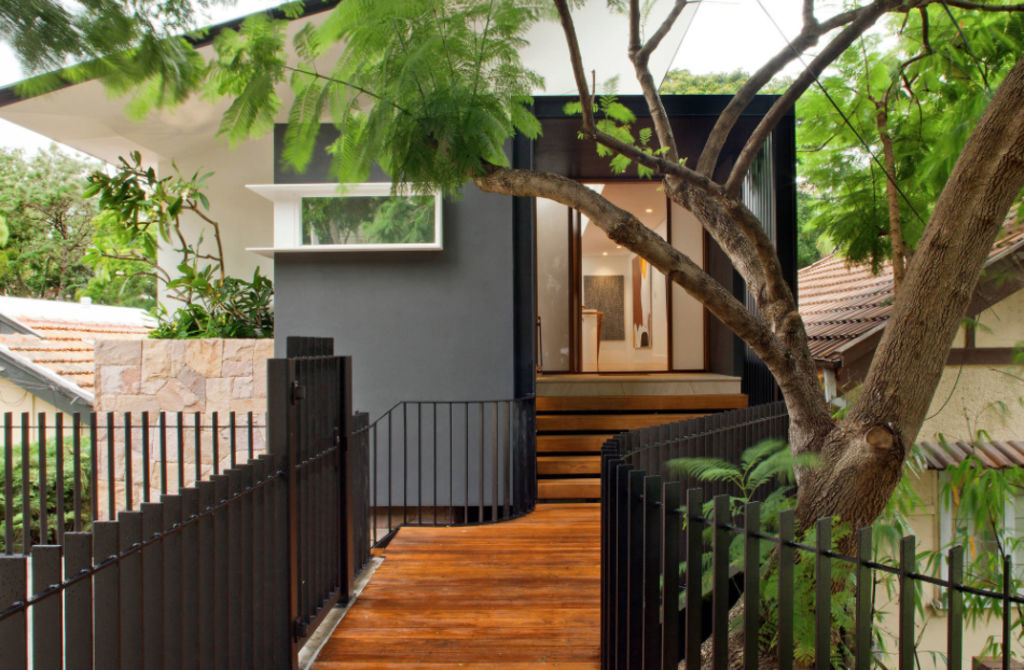Hard sell: The major factors that can hurt the sale of your property

Author: Rafael Niesten on Houzz
When selling your home, it’s important to understand what things can negatively affect the value of your property. Read on to ensure you keep the value of your property as high as possible.
Start to think about resale when you buy, not when you sell
When buying a home or apartment, you need to think about key factors that may hurt the resale value of your property, however far away that may be. If you don’t, when it comes time to sell you may be fielding low offers and wondering what the story is.
We’ve outlined some of the things you can and can’t control when it comes to your property’s resale value.
Economic factors
Economic factors can significantly affect the value of your property, and unfortunately this is an area you can’t control. However, what you can control is the timing of your sale. Checking property market conditions before you decide to sell could mean tens of thousands of dollars difference.
There are a lot of economic conditions that can raise or lower property prices, including rental vacancies, migration, housing supply and overseas buyers. As such, it’s important to keep a close eye on what’s happening so you don’t sell when the market is struggling. Instead, it could be better to wait until prices improve.
Conversely, one regularly occurring factor that cumulatively raises house prices is low interest rates. Low interest rates reduce mortgage liability for buyers, and can significantly drive up house prices, a good thing for sellers.
Neighbourhoods
Buying into a bad neighbourhood can obviously hurt your resale value. Loud partying, untidy front gardens, barking dogs and crime levels can all negatively affect a home’s value.
Unfortunately we can’t choose who moves into a neighbourhood, but it’s something you should definitely consider when you’re deciding to buy.

Know what rooms to renovate
The Housing Industry Association (HIA) says kitchens and bathrooms are the most commonly renovated rooms in houses, and these are often make-or-break deals for potential buyers.
If you’re not changing the physical structure of the room, you won’t need building approval either, which makes renovations more straightforward.

According to the HIA, other good investments when renovating include new lighting technologies that reduce power costs, glass fencing for entertainment areas, smart garden watering and home security features. Clever landscaping is also a good idea, but resist putting in a swimming pool as this can cut your potential market in half – many buyers may find it too high maintenance.

Adding a fourth bedroom to your home is also an increasing trend for renovators, with four-bedroom properties appealing to a wider section of the market than those with three bedrooms. While giving a kitchen and a bathroom a lick of paint is within the capabilities of most DIY renovators, a major overhaul or adding an extra room is best left to the professionals.
Though you may have good intentions if you’re an avid fan of The Block, a shoddy renovation job could negatively affect your property’s value at the end of the day. Plus you could end up paying more to get the job fixed.

Kerb appeal
First impressions are important when you’re selling a home and neglecting your kerb appeal can hurt your resale value disproportionately.
While your property’s physical structure is beyond your control, there’s a lot you can do to create strong kerb appeal and make your home stand out. From basic maintenance such as mowing, weeding, tidying and cleaning the roof, to painting and clever landscaping, if you put in the effort it will be reflected in your selling price.
These are just some of the factors that can hurt the value of your property, so you need to weigh up how they will affect your sale price. If you have to sell quickly then you may not have time to wait for good market conditions, but at least you can get your property looking great to entice buyers.
We recommend
We thought you might like
States
Capital Cities
Capital Cities - Rentals
Popular Areas
Allhomes
More







